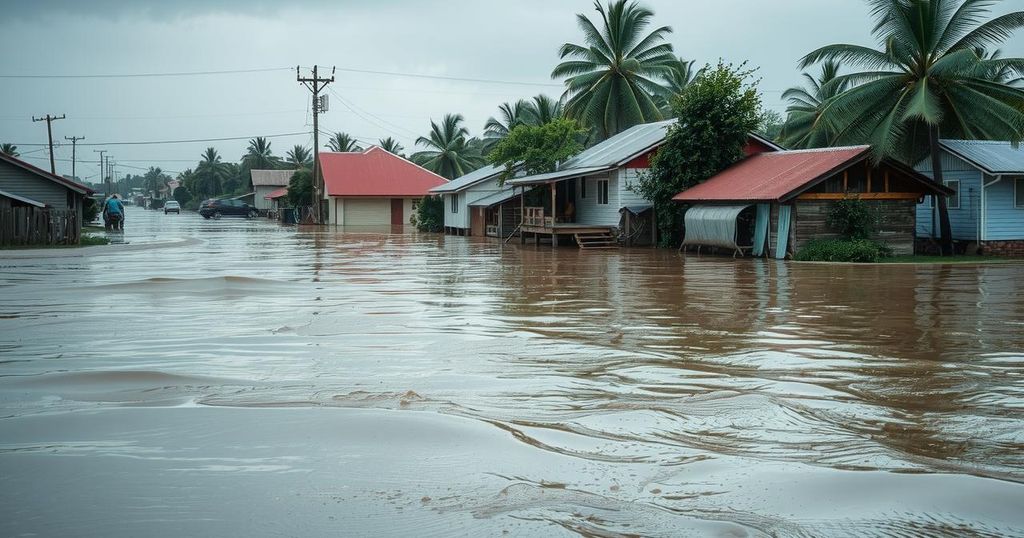World news
AFRICA, CABO DELGADO, DISASTER RELIEF, EMERGENCY RESPONSE, FLOODING, GOPI, ING, MAYOTTE, NATIONAL DISASTER RELIEF AGENCY, NATIONAL INSTITUTE FOR DISASTER RISK MANAGEMENT AND RED, NATIONAL INSTITUTE FOR DISASTER RISK MANAGEMENT AND REDUCTION, NATURAL DISASTER, NATURAL DISASTERS, NIASSA
Li Chen
0 Comments
Cyclone Chido Devastates Mozambique: Deaths Rise and Immediate Needs Escalate
Cyclone Chido in northern Mozambique has resulted in 120 fatalities and injuries to 868 individuals, affecting over 680,000 people. The cyclone has damaged or destroyed more than 140,000 homes and disrupted educational and health services significantly. The government has established emergency shelters for the displaced, emphasizing the urgent need for enhanced resilience against climate change-induced disasters.
The death toll from Cyclone Chido, which struck northern Mozambique on December 15, has escalated to 120, with 868 individuals injured and over 680,000 others affected. The cyclone has wreaked havoc primarily in the northern provinces of Cabo Delgado, Nampula, and Niassa, as reported by Mozambique’s national disaster relief agency. A staggering 123,000 families have been impacted, with approximately 140,000 homes damaged or entirely destroyed. The disaster has severely disrupted educational and healthcare facilities, affecting nearly 110,000 students and damaging over 250 schools and 52 health centers.
In light of this catastrophe, the Mozambican government has established two emergency shelters currently accommodating 1,349 displaced individuals. The National Institute for Disaster Risk Management and Reduction (INGD) has emphasized the cyclone’s devastating effects on social infrastructure, urging the necessity for robust planning to address vulnerabilities exacerbated by climate change. Cyclone Chido emerged as a tropical depression over the southwestern Indian Ocean on December 5, impacting Mayotte before imposing destruction in Mozambique. Authorities and international organizations are actively seeking aid to support the urgent needs of the affected populations.
Cyclone Chido is part of a broader trend of increasingly severe weather events attributed to climate change, which pose significant risks to social infrastructures worldwide. Such cyclones can evolve from tropical depressions to more severe classifications, leading to extensive destruction and loss. This specific cyclone has spotlighted the vulnerabilities of Mozambique’s infrastructure, particularly in health and education sectors, necessitating urgent measures to enhance resilience against future climatic events. The context surrounding Cyclone Chido underscores the ongoing challenges faced by developing nations in their efforts to manage natural disasters.
In summary, Cyclone Chido’s impact on northern Mozambique is severe, with a death toll of 120, numerous injuries, and vast numbers affected amid widespread destruction of homes and vital infrastructures. The emphasis on the vulnerability of the nation’s social systems to climate change highlights an urgent need for improved disaster preparedness and resilient planning. Continued support from both governmental and international entities remains critical in addressing the immediate humanitarian crisis and rebuilding efforts.
Original Source: www.socialnews.xyz




Post Comment